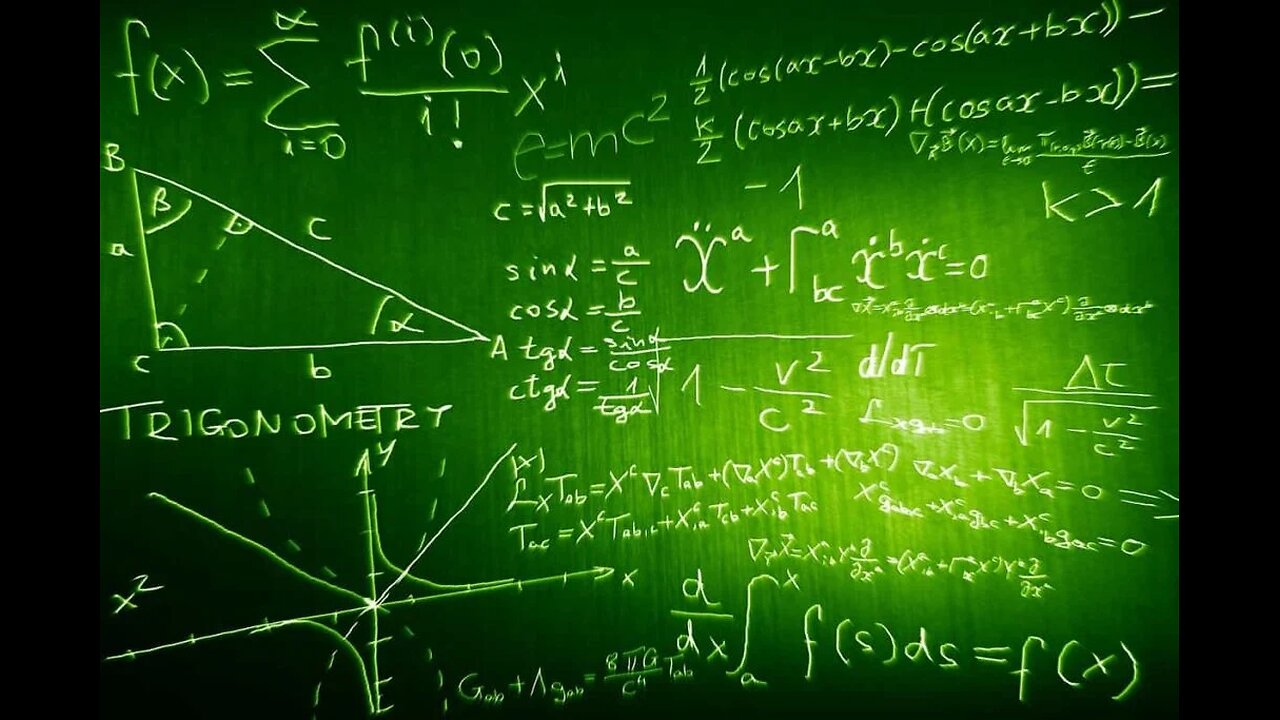Premium Only Content

REVERSE SPEECH - Is Mandela Effect'ively Nothing
The world of quantum computing has long been the domain of intrigue and curiosity, with its potential to revolutionize computing and solve complex problems previously deemed unsolvable. Among the pioneers in this field is D-Wave, the world's first company to develop and sell large-scale quantum computers. Co-founded by Geordie Rose, D-Wave has not only made headlines for its groundbreaking technology but also for its association with the Mandela Effect – a phenomenon that has captivated the public imagination. In this article, we will explore the connections between D-Wave's quantum computing advancements and the Mandela Effect, discussing the implications for our understanding of reality.
D-Wave: Pioneering Quantum Computing
D-Wave, founded in 1999 by Geordie Rose and others, has been a trailblazer in the field of quantum computing. Their quantum annealing approach leverages the principles of quantum mechanics to solve optimization problems significantly faster than classical computing methods. D-Wave's quantum computers have been utilized by major organizations like Google, NASA, and Lockheed Martin, showcasing the potential of this cutting-edge technology in addressing real-world challenges.
The Mandela Effect: A Quantum Phenomenon?
The Mandela Effect is a term coined by paranormal researcher Fiona Broome to describe the phenomenon in which a large number of people remember an event or fact differently from the way it actually occurred. This collective misremembering has been attributed to a range of theories, with one of the more outlandish being the idea that quantum computing may be causing reality to shift. Proponents of this theory argue that the advanced processing power of quantum computers like D-Wave's could be influencing the fabric of reality itself, leading to the discrepancies observed in the Mandela Effect
Geordie Rose and the Mandela Effect Connection
While there is no direct link between Geordie Rose and the Mandela Effect, his work on quantum computing has fueled speculation among proponents of this theory. In several public presentations, Rose has spoken about the power of quantum computing and how it can access alternate realities to solve problems. This idea of tapping into alternate universes has intrigued those who believe the Mandela Effect could be evidence of quantum-induced reality shifts.
It's important to note that the scientific community has not embraced the idea that quantum computing is responsible for the Mandela Effect. Instead, experts typically attribute the phenomenon to cognitive biases, memory errors, and the power of suggestion. Nevertheless, the connection between D-Wave's quantum computing breakthroughs and the Mandela Effect has captured the imagination of many, leading to ongoing speculation and debate.
Quantum Computing and Our Understanding of Reality
The idea that quantum computing could impact our perception of reality stems from the fundamental principles of quantum mechanics. This branch of physics deals with the behavior of particles at the atomic and subatomic level, which often defies our classical understanding of the world. Concepts like superposition and entanglement suggest that particles can exist in multiple states or locations simultaneously until they are observed, and this has led some to wonder if quantum computing could be revealing alternate realities or causing reality to shift in ways that manifest as the Mandela Effect
While intriguing, the notion that quantum computing is responsible for the Mandela Effect remains speculative and lacks scientific evidence. The principles of quantum mechanics, as applied to quantum computing, allow for incredible advancements in processing power and problem-solving capabilities, but there is no proof that these developments are directly affecting our perception of reality or causing collective misremembering.
Conclusion
The connection between D-Wave's quantum computing achievements and the Mandela Effect is a fascinating example of how cutting-edge technology can inspire broader discussions about the nature of reality. While there is no concrete evidence to support the idea that quantum computing is responsible for the Mandela Effect, the concept has nevertheless captured the imaginations of many who are intrigued by the potential implications of quantum mechanics on our understanding of the world.
As the field of quantum computing continues to advance, it's essential to consider both the practical applications and the broader philosophical questions that this technology raises. While D-Wave's work on quantum computing and its co-founder, Geordie Rose, may not provide definitive answers to the mysteries of the Mandela Effect, their groundbreaking efforts have undoubtedly contributed to our ongoing exploration of the quantum realm and its potential impacts on our perception of reality.
As we continue to make strides in quantum computing, we can expect more thought-provoking discussions on the intersection of technology and our understanding of the universe. The Mandela Effect serves as a reminder of the power of human curiosity and the importance of maintaining an open mind as we delve deeper into the world of quantum mechanics and its potential applications.
-
 1:41:18
1:41:18
Glenn Greenwald
3 hours agoTerror Attacks Exploited To Push Unrelated Narratives; Facing Imminent Firing Squad, Liz Cheney Awarded Presidential Medal | SYSTEM UPDATE #381
33.2K27 -
 1:02:38
1:02:38
Donald Trump Jr.
6 hours agoNew Year’s Terror, Latest Breaking News with Sebastian Gorka | TRIGGERED Ep.204
103K172 -
 LIVE
LIVE
The StoneZONE with Roger Stone
1 hour agoAfter Years of Targeting Trump, FBI and DOJ are Unprepared to Stop Terror Attacks | The StoneZONE
1,488 watching -
 LIVE
LIVE
Leonardaisfunny
22 minutes agoH-1b Visas: Infinity Indians
336 watching -
 LIVE
LIVE
Josh Pate's College Football Show
5 hours agoPlayoff Reaction Special: Ohio State Owns Oregon | Texas Survives | UGA vs Notre Dame Takeaways
214 watching -
 58:04
58:04
Kimberly Guilfoyle
4 hours agoFBI's Terror Response Failures, Live with Steve Friend & Kyle Seraphin | Ep. 185
76.9K35 -
 2:15:01
2:15:01
WeAreChange
5 hours agoMassive Developments In Vegas Investigation! UNREAL DETONATION, Shocking Details Emerge!
76.1K18 -
 54:02
54:02
LFA TV
12 hours ago2025 Is Off to a Violent Start | TRUMPET DAILY 1.2.25 7pm
18K -
 59:27
59:27
theDaily302
11 hours agoThe Daily 302- JJ Carrell
20.3K2 -
 2:57
2:57
EvenOut
1 day ago $1.28 earnedTHE TELEPORTING PORTA POTTY TWIN RPANK!
23K